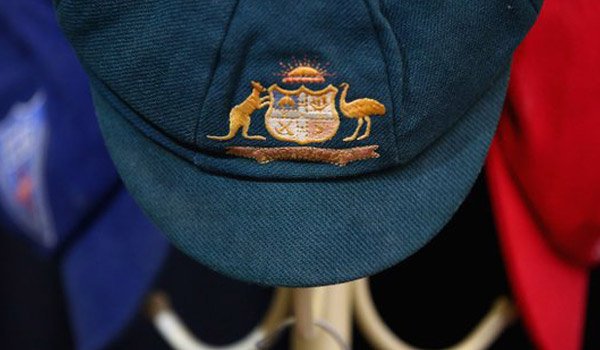Such was the player’s global status that Narendra Modi, the prime minister of cricket-obsessed India, posted a message on Twitter referring to the “Heart-rending funeral in Australia.”
“Phil Hughes, we will miss you,” he wrote. “Your game & exuberance won you fans all over! RIP."
The funeral was held in Mr. Hughes’s hometown, Macksville, about 300 miles north of Sydney, but fans gathered in the thousands across the nation to follow the proceedings on large screens at some of the country’s best-known cricket grounds. Schools and businesses shut early, news reports said.
The breadth and depth of emotion reflected Australia’s passionate attachment to cricket, a national sport played with fierce competitiveness at home and overseas. But the moment made headline news as far afield as Britain, where cricket and its forerunners date back centuries.
A campaign on social media, where people posted images of their cricket bats under the hashtag #putoutyourbats, drew a huge response.
Even though he was wearing a safety helmet, Mr. Hughes was hit on the neck during a domestic game last Tuesday and died in an induced coma on Thursday after heavy bleeding to the brain.
At a time of broader concerns about safety in sports, his death inspired a debate about the design and role of helmets and the practice of so-called bouncers, when bowlers pitch the ball short at speeds of up to 90 miles per hour, forcing it to rear up toward the batter’s upper body.
Sean Abbott, 22, who bowled the fatal ball, was among the mourners, news reports said.
Struggling against tears, Michael Clarke, the captain of the Australian national cricket team, spoke of Mr. Hughes in an emotional eulogy, using the parlance of the sport to say: “We must dig in and get through to tea. We must play on.” He was referring to the traditional afternoon break for tea when both sides’ players leave the pitch for refreshments.
“So rest in peace, my little brother,” Mr. Clarke said.
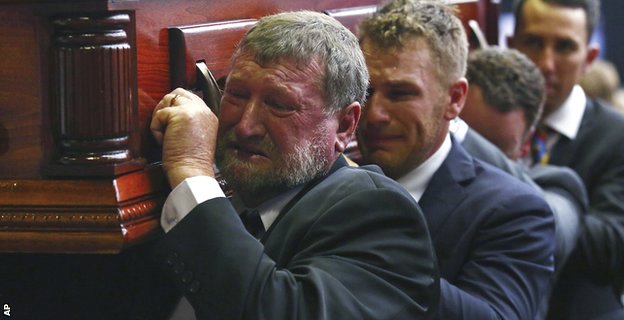
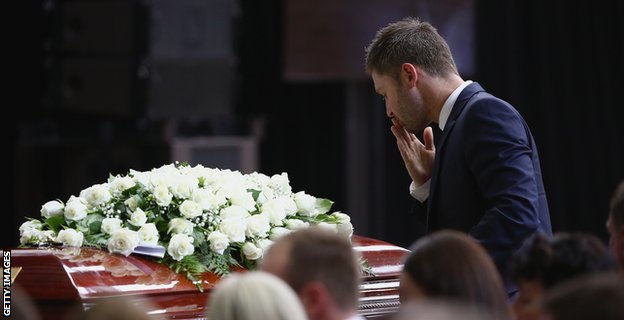
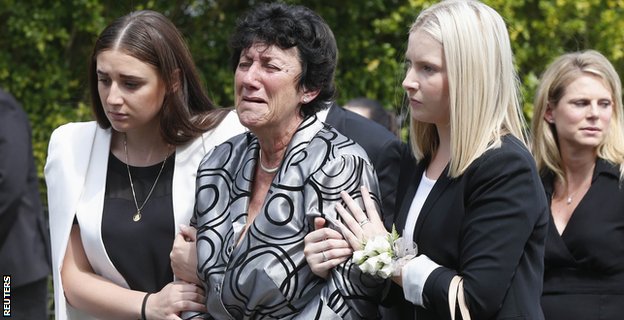
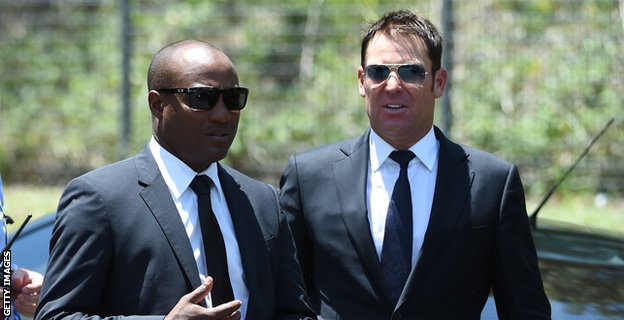
“I don’t know about you,” he told his audience, “but I keep looking for him. I know it is crazy, but I expect any minute to take a call from him or to see his face pop around the corner.
“Is this what we call the spirit?” he said. “If so, then his spirit is still with me. And I hope it never leaves.”
Mr. Abbott said the death of Mr. Hughes “just doesn’t seem right or natural.”
Only a handful of deaths caused by cricket balls have been recorded since the sport spread around the world in the 18th and 19th centuries, brought by British colonialists to the far-flung outposts of their empire.
In a bizarre echo of Mr. Hughes’s death, however, the umpire of a cricket game in Ashdod, Israel, died over the weekend after a ball hit by a batter struck him below the jaw, according to Israeli news reports.




